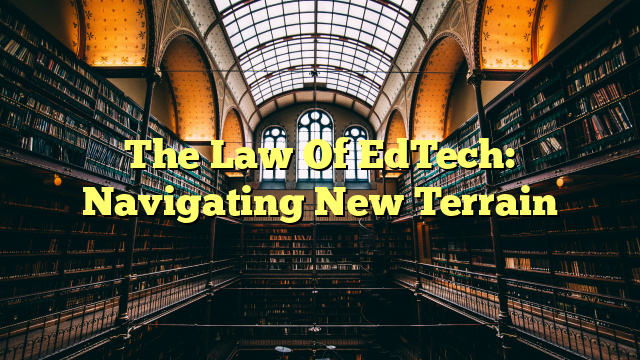Table of Contents
New Policy 2023
In 2023, a new policy was introduced in the field of education technology. This policy aimed to address the challenges and opportunities presented by the rapid advancement of technology in education. It focused on ensuring equitable access to educational resources, promoting digital literacy, and fostering innovation in teaching and learning.
EdTech Trends in 2024
Looking ahead to 2024, several trends are expected to shape the field of educational technology. These trends include:
- Personalized Learning: With the help of artificial intelligence and machine learning algorithms, educational platforms will be able to provide personalized learning experiences tailored to the individual needs and preferences of students.
- Virtual and Augmented Reality: Virtual and augmented reality technologies will become more prevalent in the classroom, allowing students to explore immersive educational environments and engage in hands-on learning experiences.
- Gamification: Gamification techniques will be increasingly used to enhance student engagement and motivation. By incorporating game elements into educational activities, students can have fun while learning.
- Data Analytics: The use of data analytics in education will continue to grow, enabling educators to gain insights into student performance and make data-driven decisions to improve learning outcomes.
Technology and the Educational Landscape
The rapid advancement of technology has significantly transformed the educational landscape. It has revolutionized the way students learn, teachers teach, and educational institutions operate. Technology has made learning more accessible, interactive, and engaging.
With the proliferation of internet-connected devices, students can access educational resources anytime and anywhere. Online learning platforms and digital textbooks have made it possible for students to learn at their own pace and explore topics beyond the traditional classroom curriculum.
Furthermore, technology has enabled new forms of collaboration and communication in education. Students can now collaborate with their peers and teachers in virtual environments, participate in online discussions, and receive instant feedback on their work.
Technology has also opened up new opportunities for educators to enhance their teaching practices. They can incorporate multimedia content, interactive simulations, and educational apps into their lessons to make them more engaging and effective.
Digital Transformation Theory in Education
The digital transformation theory in education refers to the process of integrating technology into all aspects of education to enhance teaching and learning outcomes. It involves the adoption of digital tools, platforms, and strategies to create a more student-centered and personalized learning environment.
By embracing digital transformation, educational institutions can leverage technology to improve access to education, promote equity, and prepare students for the digital age. It involves rethinking traditional teaching methods, curriculum design, assessment practices, and educational policies.
Key elements of digital transformation in education include:
- Infrastructure: Ensuring reliable internet connectivity and access to devices for all students and educators.
- Professional Development: Providing training and support for educators to effectively integrate technology into their teaching practices.
- Curriculum Design: Designing curriculum and learning experiences that leverage technology to enhance student engagement and achievement.
- Assessment and Feedback: Using digital tools and platforms to assess student learning and provide timely feedback.
- Ethical and Responsible Use: Promoting digital citizenship and teaching students about responsible and ethical use of technology.

